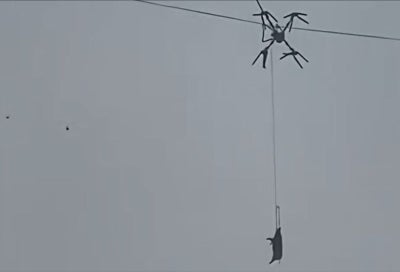Biden goes to galvanise - and restrain - Nato on Ukraine
SEBASTIAN SMITH
WASHINGTON, US - Joe Biden has two main jobs on Ukraine at next week's Nato summit, but there's a hitch: they take him in opposite directions.
The US president will arrive in Lithuania late Monday on a mission to stoke Nato support for Ukraine while simultaneously pouring cold water on dreams of quickly bringing Ukraine into the alliance.
It's a balancing act that goes to the heart of what Biden considers his biggest foreign policy achievement - uniting the West against Russia, while avoiding wider war with a nuclear superpower.
Despite fears that Europe had become too dependent on Moscow and the US Congress was too dysfunctional, Biden quickly managed to marshal both massive sanctions against Russia and dramatic military assistance for Kyiv in the wake of the February 2022 invasion.
Now with Ukraine's summer counteroffensive underway, Biden will join fellow Nato leaders in a determined mood.
"Thanks in large part to President Biden's leadership," said National Security Advisor Jake Sullivan on Friday, "the president and our allies will demonstrate our unity and resolve in supporting Ukraine." Biden begins his trip with a quick stop in close ally Britain on Monday and will finish by visiting newly minted Nato member Finland next Thursday. An extra major item on his agenda all week will be pushing Turkey to drop opposition to approving Sweden's all-but-ready Nato membership.
He will also use Vilnius on Wednesday as a backdrop for an address about "his vision of a strong, confident America, flanked by strong, confident allies and partners," Sullivan said.
Even as he galvanises the alliance on Ukraine, however, Biden will look to act as something of a restraint.
That caution has emerged every time pressure builds from Kyiv - usually backed by Poland or the three Baltic nations - to supply ever-more powerful or sophisticated weapons, whether tanks or F-16 jets. The latest sticking point is Washington's reluctance to send ATACMS, the long-range tactical missiles that Ukraine wants to use against Russian rear bases.
The way Biden puts it, some weapons are such game changers that they risk the kind of Russian retaliation which might draw in Western military forces. And that, as he has said repeatedly, is "called World War III." At each such moment, Biden nearly always follows the same pattern: initially saying no, then softening until he either greenlights delivery of things like tanks and Patriot antiaircraft systems, or at least gives his blessing for allies to send from their own arsenals.
The latest instance of bowing to a long-standing Ukrainian request was Friday's decision to send devastating - and controversial - cluster munitions. Biden told CNN that this was a "difficult decision" but Ukrainians are "running out of ammunition." When it comes to Ukraine's Nato membership dreams, though, Biden seems unlikely to budge soon.
Ukrainian President Volodymyr Zelensky this week said he wanted a membership invitation "now," telling CNN that Biden is Nato's "decision-maker." However, Sullivan said plainly: "Ukraine will not be joining Nato coming out of this summit." John Herbst, at the Atlantic Council think tank, said failure to give Ukraine some kind of substantial encouragement on future membership would be a "defeat for Nato in Vilnius." Analysts in Washington believe Ukraine could instead be offered something like the US arrangement with Israel, which receives lavish annual security funding, allowing it to make long-term plans.
The Wilson Center's Philip Reeker said "there are various credible security commitments and guarantees that may contribute more toward Ukraine's short-term interests and long-term goals, including full membership." Sullivan made clear that the White House's mix of aggression and caution in the Ukraine battle is here to stay.
Biden "has been clear that we are going to support Ukraine for as long as it takes and provide them an exceptional quantity of arms and capabilities... but that we are not seeking to start World War III," Sullivan said. - AFP
Download Sinar Daily application.Click Here!














